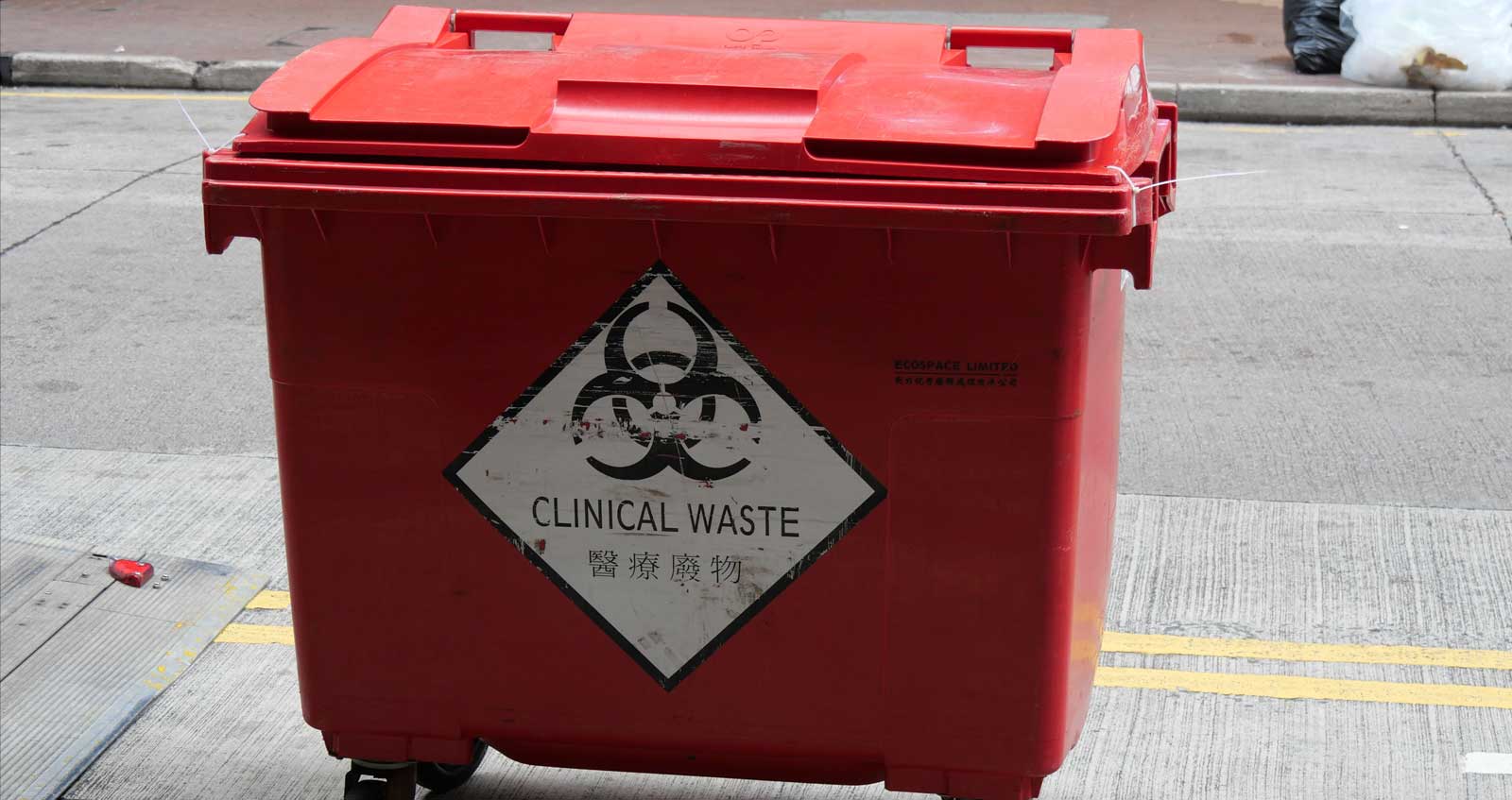Comfort at Your Front Door: Situating Reliable Medical Waste Removal Near Me
Comfort at Your Front Door: Situating Reliable Medical Waste Removal Near Me
Blog Article
Eco-Friendly Garbage Disposal Solutions for a Sustainable Future
In a globe where environmental sustainability is extremely important, the monitoring of waste has actually become a vital problem requiring interest and development. Environment-friendly waste disposal services are not mere options yet imperatives for a sustainable future. By taking on practices that reduce environmental effect and advertise resource performance, industries and communities can add considerably to a healthier earth. From waste partition at the resource to energy healing from waste, a variety of approaches exist to address the difficulties of waste disposal responsibly. The inquiry stays: which options hold the most promise for attaining a really sustainable waste monitoring system?
.jpg)
Waste Partition at Resource
When executing waste segregation at source, people can considerably add to extra reliable recycling and waste administration systems. By separating different sorts of waste such as paper, plastic, glass, and natural materials right from the factor of disposal, the procedure of recycling comes to be streamlined, minimizing contamination and increasing the worth of recyclable products. This method not only conserves resources however likewise minimizes the quantity of waste destined for land fills or incineration.
Proper waste segregation at the source is crucial for promoting a circular economic situation where products are reused, recycled, or composted rather than being disposed of as trash. It likewise helps in the efficient collection and processing of recyclables by waste monitoring centers - medical waste removal. Communities that adopt waste segregation at the source often experience cost savings in waste monitoring and see a decrease in ecological air pollution
People play an important role in the success of waste segregation efforts by being mindful of exactly how they throw away their waste - click here. Education and learning and recognition campaigns can further encourage the fostering of these practices, bring about an extra green and lasting strategy to squander disposal
Composting and Organic Waste Monitoring
An effective technique for handling organic waste and promoting sustainability is via composting. Composting is an all-natural process that disintegrates natural products like food scraps, yard waste, and paper into nutrient-rich soil changes. This process not just draws away natural waste from garbage dumps yet also creates an important item that can enrich dirt, improve plant development, and decrease the need for chemical plant foods.

Applying composting programs at the house, area, and local levels can considerably decrease the amount of natural waste that finishes up in garbage dumps. Educational campaigns on composting ideal methods and the advantages of organic waste diversion can additionally encourage extensive fostering of this eco-friendly waste administration option. click here. Ultimately, composting presents a functional and sustainable strategy to handling natural waste while adding to a greener and more lasting future
Recycling and Upcycling Initiatives
One key aspect of advertising environmentally friendly waste management practices is with the execution of reusing and upcycling initiatives. Furthermore, recycling aids in the conservation of raw products and decreases the requirement for conventional waste disposal approaches like landfilling and incineration.
Upcycling, on the various other hand, is the imaginative reuse of discarded products or materials to create products of higher top quality or worth than the initial. By upcycling, less waste is sent out to landfills, and the need for new resources reduces. This sustainable practice promotes advancement and encourages people to check out waste as a useful source.
Both reusing and upcycling initiatives play a crucial duty in promoting a round click here economic situation and reducing the environmental effect of garbage disposal. click here. By incorporating these practices into everyday life, people can add to a much more lasting future for generations to find
Power Healing From Waste

There are several innovations made use of for energy recovery from waste, consisting of incineration, gasification, and anaerobic digestion. Incineration includes shedding waste at heats to generate steam, which after that drives generators to generate electrical power. Gasification transforms natural products right into artificial gas, which can be made use of for electrical power generation or as a gas source. Anaerobic food digestion breaks down natural waste to create biogas, which can be used for heat or power production.

Community-Based Waste Decrease Programs
Taking advantage of neighborhood engagement and engagement is vital in executing effective waste reduction programs that enhance power recovery efforts in lasting waste monitoring practices. Community-based waste reduction programs include collaborative efforts between residents, local organizations, and authorities to decrease waste generation and improve recycling rates. These programs frequently include instructional projects to raise awareness about liable garbage disposal practices, the importance of recycling, and the benefits of decreasing waste.
One common approach is the establishment of neighborhood recycling centers where locals can hand over recyclable materials easily. These facilities promote reusing by making it conveniently accessible and supplying sources for proper waste sorting. Furthermore, neighborhood clean-up events and community recycling drives aid infuse a sense of environmental responsibility and unity amongst homeowners.
Moreover, community-based waste reduction programs can include campaigns such as composting workshops, reusable product exchanges, and the promotion of sustainable practices in regional organizations - medical waste removal service. By including the neighborhood in waste reduction initiatives, these programs produce a feeling of ownership and collective obligation towards building a more sustainable future
Verdict
In conclusion, implementing green garbage disposal services such as waste segregation, composting, reusing, energy recuperation, and community-based programs is critical for a sustainable future. By taking on these methods, we can minimize the environmental effect of waste generation and advertise a circular economy. It is vital that organizations, individuals, and governments interact to focus on sustainable waste management techniques to safeguard our earth for future generations.
From waste partition at the source to power recovery from waste, a wide variety of approaches exist to attend to the challenges of waste disposal sensibly. Educational initiatives on composting ideal methods and the advantages of organic waste diversion can better motivate widespread adoption of this eco-friendly waste administration solution.Effectively harnessing power from waste materials is a crucial strategy in lasting waste management techniques.Utilizing area engagement and involvement is important in applying effective waste decrease programs that enhance energy recuperation initiatives in lasting waste management methods.In conclusion, implementing environment-friendly waste disposal solutions such as waste segregation, composting, recycling, power recuperation, and community-based programs is essential for a lasting future.
Report this page